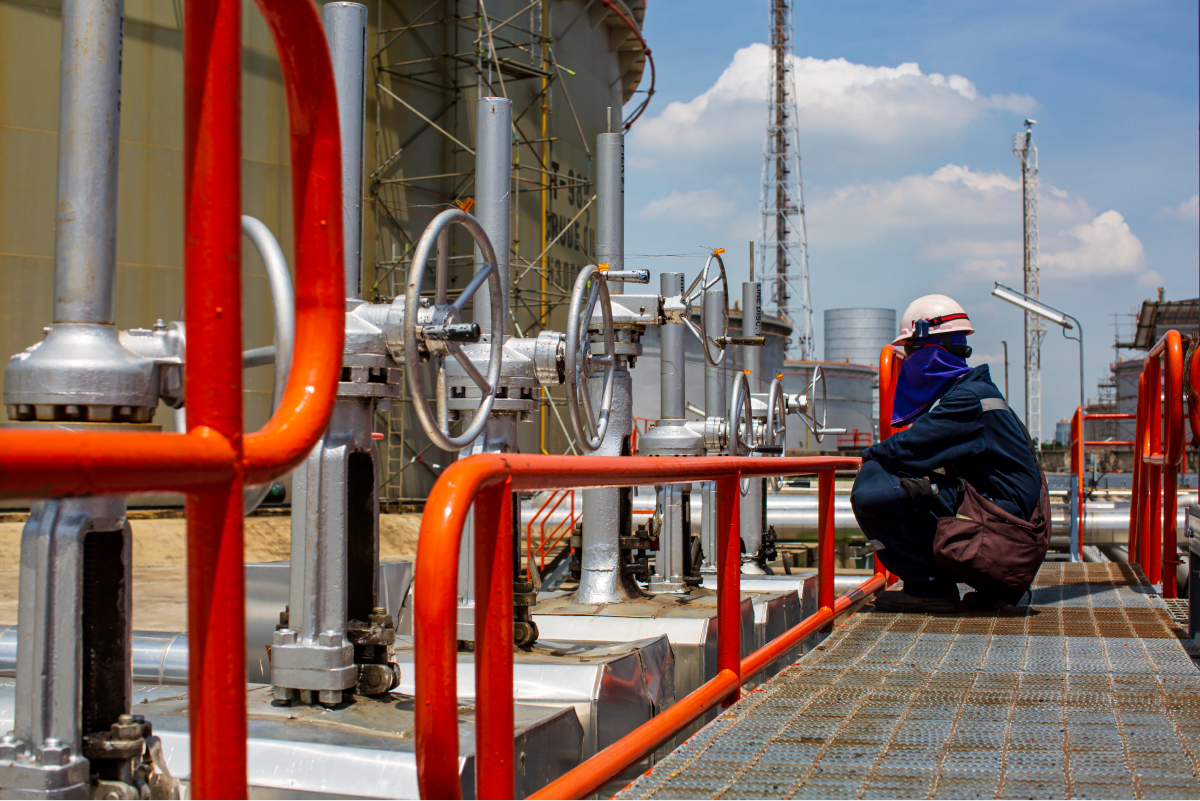## The Latest Advancements in Oil and Gas Technology: What You Need to Know
In the rapidly evolving landscape of energy resources, the oil and gas sector stands at a pivotal crossroads. Driven by **sustainability goals**, environmental concerns, and the relentless pursuit of efficiency, new **technologies** are shaping the future of this sector. Here’s a comprehensive breakdown of the most recent advancements in **oil and gas technology** and why they matter.
### 1. Digital Transformation: IoT and AI Take the Lead
The oil and gas industry is tapping into the **Internet of Things (IoT)** to enable real-time monitoring and analysis of equipment and processes. Sensors embedded in pipelines, rigs, and refineries generate vast amounts of data. **Artificial Intelligence (AI)** algorithms sift through this data, optimizing operations, predicting maintenance needs, and boosting overall efficiency.
### 2. Advanced Drilling Techniques
Innovations such as **horizontal drilling** and **hydraulic fracturing** have revolutionized the extraction process. These techniques enable the recovery of oil and gas from previously inaccessible or non-economical reserves, making the industry more resilient to price fluctuations.
### 3. Enhanced Oil Recovery (EOR)
As conventional extraction techniques leave behind a significant percentage of oil, **EOR technologies** are gaining traction. Methods like gas injection, thermal recovery, and chemical flooding push the boundaries of reservoir yields.
### 4. Environmentally-Friendly Solutions
The industry is actively exploring eco-friendly alternatives, from **biodegradable drilling fluids** to **green completion techniques**. These initiatives reflect the sector’s commitment to minimizing its environmental footprint and aligning with global sustainability goals.
### 5. Digital Twins for Asset Management
**Digital twins**—virtual replicas of physical assets—offer an innovative approach to asset management. By simulating real-world conditions, they help in predictive maintenance, reducing downtimes, and maximizing asset lifespans.
### 6. Automation and Robotics
**Remote-operated vehicles (ROVs)** and **autonomous drones** are being deployed for tasks ranging from deep-sea drilling to pipeline inspections. These advancements are not only increasing operational efficiency but also enhancing safety by reducing human exposure to hazardous conditions.
### 7. Blockchain in Supply Chain Management
Blockchain technology is making inroads into the oil and gas sector, ensuring **transparency**, **security**, and **efficiency** in supply chain management. From tracking asset transfers to ensuring contractual compliance, blockchain offers a slew of advantages.
### Conclusion
The oil and gas sector, often perceived as traditional, is undergoing a massive technological overhaul. From embracing digital solutions to investing in sustainable practices, the industry is gearing up for a future that’s efficient, sustainable, and technologically advanced. As global energy needs continue to evolve, these advancements ensure that the oil and gas industry remains a vital player in the energy landscape.
*Keywords:
## The Latest Advancements in Oil and Gas Technology: What You Need to Know
In the rapidly evolving landscape of energy resources, the oil and gas sector stands at a pivotal crossroads. Driven by **sustainability goals**, environmental concerns, and the relentless pursuit of efficiency, new **technologies** are shaping the future of this sector. Here’s a comprehensive breakdown of the most recent advancements in **oil and gas technology** and why they matter.
### 1. Digital Transformation: IoT and AI Take the Lead
The oil and gas industry is tapping into the **Internet of Things (IoT)** to enable real-time monitoring and analysis of equipment and processes. Sensors embedded in pipelines, rigs, and refineries generate vast amounts of data. **Artificial Intelligence (AI)** algorithms sift through this data, optimizing operations, predicting maintenance needs, and boosting overall efficiency.
### 2. Advanced Drilling Techniques
Innovations such as **horizontal drilling** and **hydraulic fracturing** have revolutionized the extraction process. These techniques enable the recovery of oil and gas from previously inaccessible or non-economical reserves, making the industry more resilient to price fluctuations.
### 3. Enhanced Oil Recovery (EOR)
As conventional extraction techniques leave behind a significant percentage of oil, **EOR technologies** are gaining traction. Methods like gas injection, thermal recovery, and chemical flooding push the boundaries of reservoir yields.
### 4. Environmentally-Friendly Solutions
The industry is actively exploring eco-friendly alternatives, from **biodegradable drilling fluids** to **green completion techniques**. These initiatives reflect the sector’s commitment to minimizing its environmental footprint and aligning with global sustainability goals.
### 5. Digital Twins for Asset Management
**Digital twins**—virtual replicas of physical assets—offer an innovative approach to asset management. By simulating real-world conditions, they help in predictive maintenance, reducing downtimes, and maximizing asset lifespans.
### 6. Automation and Robotics
**Remote-operated vehicles (ROVs)** and **autonomous drones** are being deployed for tasks ranging from deep-sea drilling to pipeline inspections. These advancements are not only increasing operational efficiency but also enhancing safety by reducing human exposure to hazardous conditions.
### 7. Blockchain in Supply Chain Management
Blockchain technology is making inroads into the oil and gas sector, ensuring **transparency**, **security**, and **efficiency** in supply chain management. From tracking asset transfers to ensuring contractual compliance, blockchain offers a slew of advantages.
### Conclusion
The oil and gas sector, often perceived as traditional, is undergoing a massive technological overhaul. From embracing digital solutions to investing in sustainable practices, the industry is gearing up for a future that’s efficient, sustainable, and technologically advanced. As global energy needs continue to evolve, these advancements ensure that the oil and gas industry remains a vital player in the energy landscape.
